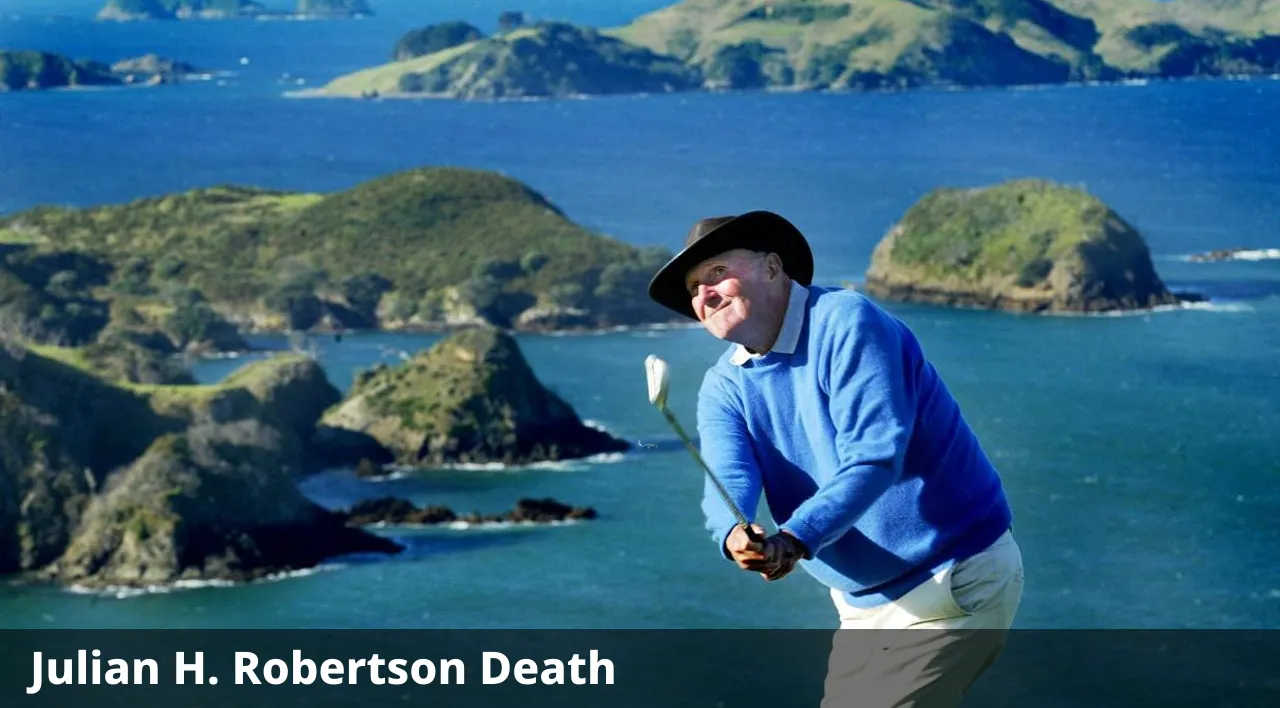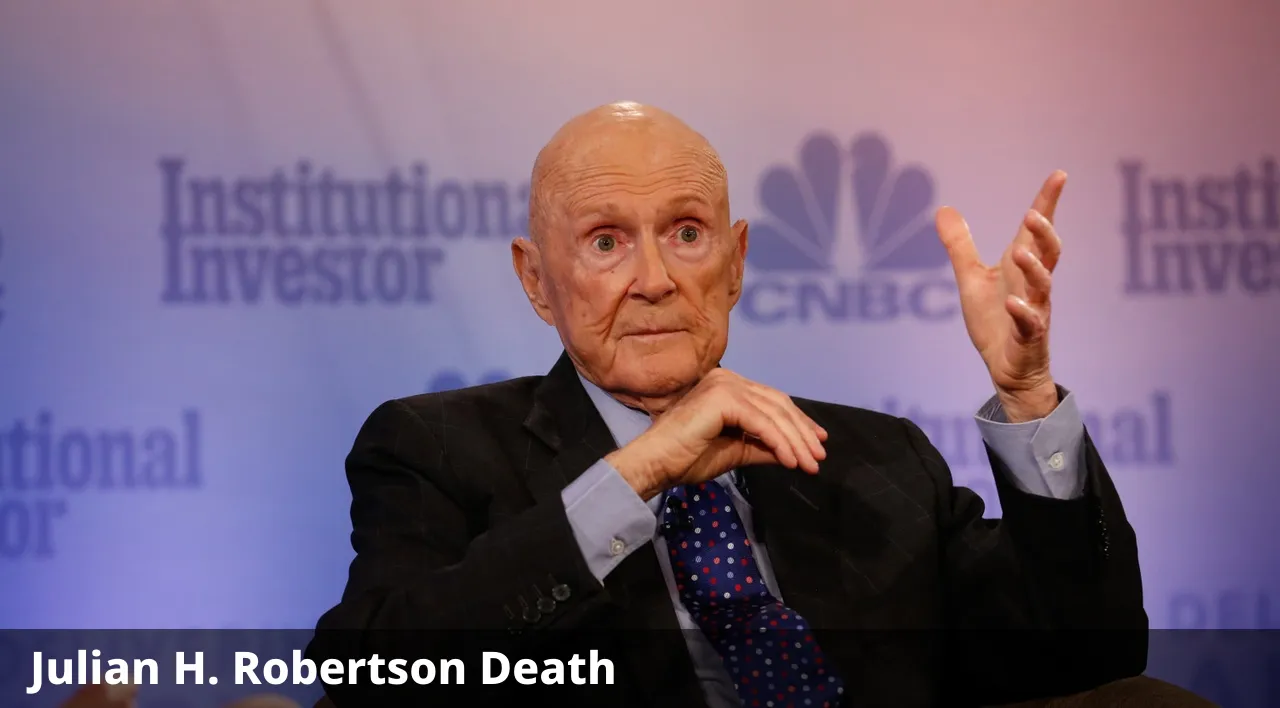At the age of 90, Julian H. Robertson passed away as the pioneer of Tiger Management LLC and a major backer of the “Tiger Cubs” generation of hedge fund managers. On Tuesday, Bloomberg confirmed his passing with a quote from his longtime spokesman, Fraser Seitel.
Beginning with only $8 million, Robertson grew Tiger Management into one of the largest and most successful hedge fund organizations, with assets of over $21 billion. Among the “real founding fathers of the contemporary hedge fund sector,” as one analyst put it.
During his career, he helped shape the careers of Robert Citrone, Chase Coleman, and other future stars of the hedge fund industry. Bill Hwang, the founder and CEO of Archegos, was also a “Tiger Cub” before he was arrested in April for criminal securities fraud.
Hedge fund billionaire Julian Robertson: Trump is doing an ‘excellent job,’ deserves more credit https://t.co/tAVf9Jdh5l
— CNBC (@CNBC) June 14, 2018
A great place to raise a family. On June 25, 1932, in the little Piedmont town of Salisbury, North Carolina, Julian Hart Robertson, Jr. was born. In retrospect, I can say, “It was a great location to grow up. Robertson said in his thick southern drawl, “I think everyone should be compelled to grow up in a small town.” This was in an interview with OneWire in 2013.
He attended Episcopal High School, a boarding institution located in Alexandria, Virginia, for all four years of high school. As far as learning is concerned, that’s the most significant site for me. And the United States Navy,” Robertson told OneWire.
In 1955, he received his degree from UNC-Chapel Hill. While he was at university, he joined the Zeta Psi fraternity.

His post-university life included two years in the Navy, and then he started working as a stockbroker for Kidder, Peabody & Co. Robertson had risen to the position of chief executive officer of Webster Management Corporation, the firm’s investment advising arm, by 1974.
Robertson left Kidder, Peabody in 1978 to go to New Zealand, where he intended to write a novel. Over time, he amassed a fortune and bought a winery and a string of upscale golf resorts in New Zealand.
I believe I came to the conclusion that the manner we were investing was flawed. We were investing in the usual fashion, with 15% in bonds and 85% in stocks or something along those lines. Robertson said to OneWire, “I think I knew pretty quickly that what we should be doing was running a hedge fund because I handled my account this way.”
Abilities in recognising and selecting top performers. At age 48, Robertson established Tiger Management in 1980 as a long-short stock hedge fund that eventually expanded into global equities, commodities, currencies, and bonds.
Far from being ice cold in control, his mood could swing dangerously, but he was charming in a southern way and networking in a New York one. According to Sebastian Mallaby’s best-selling book, “More Money Than God,” the man who hired in his own image was “tall, confident, and athletically built; he was a guy’s guy, a jock’s jock.”
Robertson was not only an astute investor, but also a master at selecting top-tier personnel. Robertson was responsible for the careers of many prominent hedge fund managers and analysts, including Philippe Laffont of Coatue, Chase Coleman of Tiger Global, Lee Ainslie of Maverick, John Griffin of Blue Ridge Capital, Steve Mandel of Lone Pine, and many more.
In Sun Valley, Idaho, U.S.A. on July 9, 2019, Philippe Laffont, founder of Coatue Management, will be present at the annual Allen and Co. Sun Valley media conference. Photo by Brendan McDermid/REUTERS
The two most crucial qualities of a hedge fund manager are intelligence and integrity. Adjacent to it is presumably rivalry. To the contrary, we relish a healthy dose of healthy competition. He told OneWire, “Someone who won’t lose, doesn’t lose.”
Daniel Strachman, author of “Julian Robertson: A Tiger in the Land of Bulls and Bears,” described Robertson as having a “competitive streak that runs deep in his veins, and he unleashes it not only when he is trading or investing but also in his everyday life, including when he is relaxing on the golf course.”
Even though Robertson had spent his career as a value investor, he watched his hedge fund’s returns fall in the late 1990s as the value of internet and computer firms skyrocketed. Robertson, an outspoken sceptic of soaring tech stocks, returned investor funds and shut down his hedge fund in the year 2000, just before the dot-com bubble exploded.
He kept running Tiger Management as a private hedge fund for his family. Robertson’s 67-year-old wife, Josephine Tucker Robertson, passed away in 2010. The Central Park Conservancy and Lincoln Center for the Performing Arts both received significant donations from the couple, which was reported in her obituary in The New York Times.


